|
TOM WAITS "ALICE" & "BLOOD MONEY"
Anti
I cannot shake the image of Tom Waits, sprawled on a pile of trash in a filthy New Orleans alleyway with a half-finished bottle of bourbon in his hand, looking like a bemused corpse as a passing foreign tourist exclaims in broken English: "Life is a-strange and beautiful!" This scene from Jim Jarmusch's great film "Down By Law" starring Waits as an escaped convict and former disc jockey, perfectly encapsulates the haunting dichotomy of Waits' thematic content: losers and fools, cynically yet romantically viewing the beautiful and filthy panorama of the human comedy with sinister bemusement and sad resignation. Ever since we were introduced to Waits' gallery of thieves, drunks, jailbirds, addicts and losers in 1973's "Closing Time", listeners who were paying attention have witnessed one of the most successful evolutions of a popular artist in the history of recorded music. Beginning as a kind of world-weary, lowlife version of Leonard Cohen, Tom Waits gradually honed his lyrics and songwriting skills throughout the 70's and 80's. However, it was not until 1983's "Swordfishtrombones" that we were introduced to a compositional soundworld that finally matched Waits' disturbing and profound narrative world. This sound was perfected with "Rain Dogs", a perfect meeting of Waits' amazing songwriting skills and outstandingly leftfield compositional genius. Since then, Waits' output has just gotten stranger and stranger, with atonal, arrhythmic and grotesque albums such as "Bone Machine" and "Mule Variations", amazing experiments that somehow fall short in the content department - Waits' trademark black humor and poetic lyricism are overwhelmed by the bombastic and distracting production. It seemed we would never again be treated to the masterful balance that characterized "Rain Dogs."
 That is until last Tuesday, when Waits simultaneously released "Alice" and "Blood Money" on the Epitaph imprint. This dual release represents Waits' best work since the seminal "Rain Dogs" and contain more memorable songs and amazing composition than seems possible for an artist who should be well past his prime by now. The gravelly graveyard blues that dominated "Mule Variations" has been replaced with an atmospheric combination of dark lounge, Dixieland jazz, ragtime and touches of dreamlike, surrealistic sound production worthy of a David Lynch soundtrack.
That is until last Tuesday, when Waits simultaneously released "Alice" and "Blood Money" on the Epitaph imprint. This dual release represents Waits' best work since the seminal "Rain Dogs" and contain more memorable songs and amazing composition than seems possible for an artist who should be well past his prime by now. The gravelly graveyard blues that dominated "Mule Variations" has been replaced with an atmospheric combination of dark lounge, Dixieland jazz, ragtime and touches of dreamlike, surrealistic sound production worthy of a David Lynch soundtrack.
While the two albums do not drastically differ, "Alice" is generally more surreal, dreamy and subdued; while "Blood Money" is lot more cynical and drenched with noisy blues. The lyrical content of "Alice" is jaw-droppingly poetic, especially on "Everything You Can Think," where Waits wheezes and gasps the amazing lyric "We're fighting our way up dreamland's spine/With red flamingoes and expensive wine/Everything you can think of is true." The strings, horns and syncopated percussion fit perfectly with the dark and bizarre melancholy narratives that Waits spins. A spine tingling moment comes in "Watch Her Disappear" as Waits'voice gradually fades into the oblivion of the lovely organ, cello and violin melody. A lovely album. If you were only going to purchase one of the two, I would have to recommend "Alice", but you should really just get both of them, as "Blood Money" is nearly as amazing.
 "Blood Money" is the more pessimistic of the pair. The dirty, claustrophobic sound atmosphere is punched up with abrasive rhythms and negative-as-hell lyrics. Waits alternately assures us that we are all going to hell, that we are all fools when we are in love, and that life is a sad riddle, filled with misery, that will never grow or change. There are two transitional instrumental tracks here that work very well; it is almost a relief to hear the subtle instrumentals without being bludgeoned by Waits' raspy crooning. On the heartbreaking closer "A Good Man is Hard to Find", Waits' voice intones: "Go out to the meadow, scare off all the crows/It does nothing but rain here, and nothing ever grows."
"Blood Money" is the more pessimistic of the pair. The dirty, claustrophobic sound atmosphere is punched up with abrasive rhythms and negative-as-hell lyrics. Waits alternately assures us that we are all going to hell, that we are all fools when we are in love, and that life is a sad riddle, filled with misery, that will never grow or change. There are two transitional instrumental tracks here that work very well; it is almost a relief to hear the subtle instrumentals without being bludgeoned by Waits' raspy crooning. On the heartbreaking closer "A Good Man is Hard to Find", Waits' voice intones: "Go out to the meadow, scare off all the crows/It does nothing but rain here, and nothing ever grows."
Tom Waits is a constantly evolving artist who has developed an original, idiosyncratic universe that is instantly recognizable and always intriguing. "Alice" and "Blood Money" represent his most perfected expression of his universe in more than a decade. - Jonathan Dean
samples from Alice: samples from Blood Money:
Aelters, "Volu Beit"
Tigerbeat 6
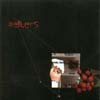 DAT Politics, a quartet of French laptop-players, represent everything that's good about contemporary DIY post-techno electronic music. Their music is challenging yet undeniably fun, complex yet engaging as hell, and none of their albums (as far as I know) come with anything like a manifesto. This 3" CD is a solo release by E.Aelters, one member of that band, and is exactly as good as anything by the full group. The seven tunes are upbeat, energetic, and pervaded by an infectious, invigorating joy. That the sense of play is heightened (rather than compromised) by chopped-up noise and stammering tape-like effects that zip maniacly around the stereo field is nothing less than an inspired miracle. The tunes and rhythms are made up of thick, block-like chunks (I am reminded of children's toys) and animal sounds (!), always in motion, ensuring plenty to keep a listener's attention at several levels. I had a huge smile on my face for the entirety of "Volu Beit"s 22 minutes, then I hit "play" again and smiled some more. Highly recommended! - Howard Stelzer
DAT Politics, a quartet of French laptop-players, represent everything that's good about contemporary DIY post-techno electronic music. Their music is challenging yet undeniably fun, complex yet engaging as hell, and none of their albums (as far as I know) come with anything like a manifesto. This 3" CD is a solo release by E.Aelters, one member of that band, and is exactly as good as anything by the full group. The seven tunes are upbeat, energetic, and pervaded by an infectious, invigorating joy. That the sense of play is heightened (rather than compromised) by chopped-up noise and stammering tape-like effects that zip maniacly around the stereo field is nothing less than an inspired miracle. The tunes and rhythms are made up of thick, block-like chunks (I am reminded of children's toys) and animal sounds (!), always in motion, ensuring plenty to keep a listener's attention at several levels. I had a huge smile on my face for the entirety of "Volu Beit"s 22 minutes, then I hit "play" again and smiled some more. Highly recommended! - Howard Stelzer
samples:
Múm "Green Grass of Tunnel" 7"
Fat Cat
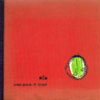 I forgot to switch my record player to 45 RPM the first time I listened to this seven-inch. I thought, Hey, this is pretty good. It's sort of new territory for Múm. It's very intently slow, and though it's got some electronics in the mix, the violin and keyboards sound very lo-fi and kind of eerie. It's really kind of beautiful. Then the vocals came in and I thought, These vocals are so painfully restrained and bizarre - like a low-pitched whispery falsetto. Is one of the girl twins singing or is it one of the men? I can't tell. They're really expanding their sound. What a damn cool song. I listened to it again, transfixed. Then I remembered that I hadn't switched the speed on the turntable... So I listened to it again at 45 RPM, and I realized that I'd been assessing the song totally at the wrong speed. At a faster speed, the song was more recognizably Múm - the electronic beat was faster, more of a groove, the keyboard sounds were more like I remembered they were on 'Yesterday Was Dramatic...' and some of the drums sounded like real drums. When the female voice started singing, recalling "Ballad of the Broken Birdie Records," it was obvious that this was the correct speed. And I thought, What a damn cool song - and so completely different of a feel when from when I thought it was so slow. Now I'm itching to go home and listen to "Broken Birdie" at about 75% the actual speed to see what I can discover. This 7" is easily the best piece of music I've bought in months. - Nate Smith
I forgot to switch my record player to 45 RPM the first time I listened to this seven-inch. I thought, Hey, this is pretty good. It's sort of new territory for Múm. It's very intently slow, and though it's got some electronics in the mix, the violin and keyboards sound very lo-fi and kind of eerie. It's really kind of beautiful. Then the vocals came in and I thought, These vocals are so painfully restrained and bizarre - like a low-pitched whispery falsetto. Is one of the girl twins singing or is it one of the men? I can't tell. They're really expanding their sound. What a damn cool song. I listened to it again, transfixed. Then I remembered that I hadn't switched the speed on the turntable... So I listened to it again at 45 RPM, and I realized that I'd been assessing the song totally at the wrong speed. At a faster speed, the song was more recognizably Múm - the electronic beat was faster, more of a groove, the keyboard sounds were more like I remembered they were on 'Yesterday Was Dramatic...' and some of the drums sounded like real drums. When the female voice started singing, recalling "Ballad of the Broken Birdie Records," it was obvious that this was the correct speed. And I thought, What a damn cool song - and so completely different of a feel when from when I thought it was so slow. Now I'm itching to go home and listen to "Broken Birdie" at about 75% the actual speed to see what I can discover. This 7" is easily the best piece of music I've bought in months. - Nate Smith
samples:
Sofandi, "Ugly Demos"
TMT
 Sofandi might share a label with Múm and Trabant, but their world is a much, much different place. The second album from this Reykjavik-based slow-paced rock group (whose name translates as 'Asleep') paints a cold, harsh, and bleak picture of their world. If it's not in the pessimistic lyrics in which the singer admits repetitiously he's either sick, drunk, or hopeless, (or a hopeless sick drunk) it's in the melodies, which all become rather gloomy following the rather bright opening instrumental introduction. There is an indescribably magical charm, like some of my other favorite hopeless sick drunks like Mark Eitzel or Tom Waits, which makes the whole experience more appealing than pathetic. Perhaps it's the tough spine of a tight musical group (with a notably lyrical bass guitarist) who pays close attention to each other, without stomping on each others toes or staring at their shoes and all strumming the same chords at once (yawn!). Songs often have a variety of parts and movements, which keeps them interesting. The instrumental, "Please Don't Go" is surprisingly optimistic, almost a tribute to the Aerial M days of David Pajo, while the momentum of "Another You" builds to a rough and rugged pace without getting completely out of hand. In addition, there are some amusing moments, (the jury's still out on whether it's intentional or not) like when the drowsy guest female vocalist casually barks "shut up" during "Something Always Comes Up," or as the band whistles their way out on the closer, "Don't Get Overexcited." The album climax is undoubtedly the emotional 11+ minute epic, "Trillúkarlar," without lyrics but with a light seasoning of subtle female singing. I could easily see myself getting drunk in a late night bar out in the midwest as this band plays, taking that 'first step' with admitting that I have a problem but being amused all the while. - Jon Whitney
Sofandi might share a label with Múm and Trabant, but their world is a much, much different place. The second album from this Reykjavik-based slow-paced rock group (whose name translates as 'Asleep') paints a cold, harsh, and bleak picture of their world. If it's not in the pessimistic lyrics in which the singer admits repetitiously he's either sick, drunk, or hopeless, (or a hopeless sick drunk) it's in the melodies, which all become rather gloomy following the rather bright opening instrumental introduction. There is an indescribably magical charm, like some of my other favorite hopeless sick drunks like Mark Eitzel or Tom Waits, which makes the whole experience more appealing than pathetic. Perhaps it's the tough spine of a tight musical group (with a notably lyrical bass guitarist) who pays close attention to each other, without stomping on each others toes or staring at their shoes and all strumming the same chords at once (yawn!). Songs often have a variety of parts and movements, which keeps them interesting. The instrumental, "Please Don't Go" is surprisingly optimistic, almost a tribute to the Aerial M days of David Pajo, while the momentum of "Another You" builds to a rough and rugged pace without getting completely out of hand. In addition, there are some amusing moments, (the jury's still out on whether it's intentional or not) like when the drowsy guest female vocalist casually barks "shut up" during "Something Always Comes Up," or as the band whistles their way out on the closer, "Don't Get Overexcited." The album climax is undoubtedly the emotional 11+ minute epic, "Trillúkarlar," without lyrics but with a light seasoning of subtle female singing. I could easily see myself getting drunk in a late night bar out in the midwest as this band plays, taking that 'first step' with admitting that I have a problem but being amused all the while. - Jon Whitney
samples:
Fanny, "Fear & Loathing for Dummies"
Mirex
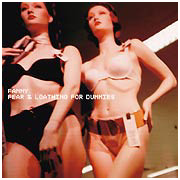 There must be something strange in Winnipeg's water. Or maybe not... maybe it's just a case of Fanny having a serious case of Venetian-Snares-idol-worship. Whatever the case may be, Fanny sounds a lot like Venetian Snares. If you're familiar with Venetian Snares' music, that sentence essentially pre-empts the rest of this review for you. However, to Fanny's credit, he (for the most part) isn't as needlessly "experimental" (for want of a better term) as the Snares man is. Regardless, I don't find myself enjoying this disc much. First and foremost, however, it's a style issue - this breakcore just isn't my kind of breakcore. Technically Fanny fares quite well, chopping up breakbeats and samples and mixing it all together. But I just can't get into it. Give me a DJ Scud record and I'll be swaying and doing my best ragga-rudeboy impression, but Fanny leaves me somewhat entertained, but not marveled or enchanted. Despite some clever tracks ("Artists or Anarchists") this album left a strange taste in my mouth - like marshmallows without sugar, or something. But if you're into the "Winnipeg" style of breakcore (I guess it's turning into its own genre now) - give this disc a try at least. - Chris Zaldua
There must be something strange in Winnipeg's water. Or maybe not... maybe it's just a case of Fanny having a serious case of Venetian-Snares-idol-worship. Whatever the case may be, Fanny sounds a lot like Venetian Snares. If you're familiar with Venetian Snares' music, that sentence essentially pre-empts the rest of this review for you. However, to Fanny's credit, he (for the most part) isn't as needlessly "experimental" (for want of a better term) as the Snares man is. Regardless, I don't find myself enjoying this disc much. First and foremost, however, it's a style issue - this breakcore just isn't my kind of breakcore. Technically Fanny fares quite well, chopping up breakbeats and samples and mixing it all together. But I just can't get into it. Give me a DJ Scud record and I'll be swaying and doing my best ragga-rudeboy impression, but Fanny leaves me somewhat entertained, but not marveled or enchanted. Despite some clever tracks ("Artists or Anarchists") this album left a strange taste in my mouth - like marshmallows without sugar, or something. But if you're into the "Winnipeg" style of breakcore (I guess it's turning into its own genre now) - give this disc a try at least. - Chris Zaldua
samples:
Dianogah, "Millions of Brazillians
Southern
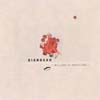 It's almost too good to be true. Dianogah, one of the finest instrumental math rock groups around, enter the studio to record another full-length, this time with John McEntire turning the knobs. You can't ask for a better recipe than that. And the results? Yes, "Millions of Brazillians is the best Dianogah release yet, for a number of reasons. First, McEntire, unlike Steve Albini on their last release, "Battle Champions," didn't just let them rest on their laurels and press record in the control room. As the liner notes say: "Recorded, Mixed, and Embiggened" were McEntire's credits, and it shows. Second, the songs are more expansive, accomplished, and crisper sounding. The band seems more aggressive and confident. The guest musicians, not often seen on Dianogah releases (they used to have Team Dianogah releases specifically to separate work with guest musicians from their releases), add flourishes here and there that are worthy additions to the sound. 'The Smallest Chilean' is the darkest Dianogah yet, pushing For Carnation territory. 'Flat Panda' is among their most melodic work, reminiscent of their contribution to the "Reach the Rock" soundtrack. In fact, despite the strange titles ('Goto Dengo Loses the War'?), this music is all very driven, almost sensual. And, lastly, for the first time, no vocals appear anywhere on this release. Not that the vocals were ever THAT bad, but it's great to hear a whole Dianogah CD without any really awkward moments, which the vocals always seemed to be. Check out the sound samples and I bet you'll agree: Dianogah can only get better. - Rob Devlin
It's almost too good to be true. Dianogah, one of the finest instrumental math rock groups around, enter the studio to record another full-length, this time with John McEntire turning the knobs. You can't ask for a better recipe than that. And the results? Yes, "Millions of Brazillians is the best Dianogah release yet, for a number of reasons. First, McEntire, unlike Steve Albini on their last release, "Battle Champions," didn't just let them rest on their laurels and press record in the control room. As the liner notes say: "Recorded, Mixed, and Embiggened" were McEntire's credits, and it shows. Second, the songs are more expansive, accomplished, and crisper sounding. The band seems more aggressive and confident. The guest musicians, not often seen on Dianogah releases (they used to have Team Dianogah releases specifically to separate work with guest musicians from their releases), add flourishes here and there that are worthy additions to the sound. 'The Smallest Chilean' is the darkest Dianogah yet, pushing For Carnation territory. 'Flat Panda' is among their most melodic work, reminiscent of their contribution to the "Reach the Rock" soundtrack. In fact, despite the strange titles ('Goto Dengo Loses the War'?), this music is all very driven, almost sensual. And, lastly, for the first time, no vocals appear anywhere on this release. Not that the vocals were ever THAT bad, but it's great to hear a whole Dianogah CD without any really awkward moments, which the vocals always seemed to be. Check out the sound samples and I bet you'll agree: Dianogah can only get better. - Rob Devlin
samples:
zipperspy, "glass bomb baby"
Fuzzybox
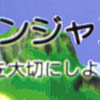 I was mesmerized the first time I saw Maria Moran, otherwise known as Zipperspy, play at a gig opening for Zbigniew Karkowski, whom she blew out of the water with a commanding and enigmatic performance. Armed with her laptop, Moran unleashed a fury of aggressive distortion and pulse-pounding beats. Upon learning a few months later of her new album, 'Glass Bomb Baby', by Darla sub-label Fuzzy Box, I was eager to get my hands on it as soon as possible. Sadly, I discovered that her record does not fully live up to the strength of her live act. The album is a patchwork of convulsive gabber loops, electronic twitches and twitters, vocal fragments, and eerie bits of instrumentation. The tracks themselves are usually two minutes long or less, and seem to be pieces Moran has culled from various sources, such as live performances and "phone machine in Oakland" (?). 'Glass Bomb Baby', despite being unspectacular, is by no means dismissable. Moran's integrity and hard work are evident. Perhaps Zipperspy just has to been seen to be believed.
- Jessica Tibbits
I was mesmerized the first time I saw Maria Moran, otherwise known as Zipperspy, play at a gig opening for Zbigniew Karkowski, whom she blew out of the water with a commanding and enigmatic performance. Armed with her laptop, Moran unleashed a fury of aggressive distortion and pulse-pounding beats. Upon learning a few months later of her new album, 'Glass Bomb Baby', by Darla sub-label Fuzzy Box, I was eager to get my hands on it as soon as possible. Sadly, I discovered that her record does not fully live up to the strength of her live act. The album is a patchwork of convulsive gabber loops, electronic twitches and twitters, vocal fragments, and eerie bits of instrumentation. The tracks themselves are usually two minutes long or less, and seem to be pieces Moran has culled from various sources, such as live performances and "phone machine in Oakland" (?). 'Glass Bomb Baby', despite being unspectacular, is by no means dismissable. Moran's integrity and hard work are evident. Perhaps Zipperspy just has to been seen to be believed.
- Jessica Tibbits
samples:
saloon, "(This is) What We Call Progress"
Darla
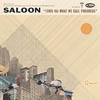 Reading, UK quintet Saloon emerge with their debut full-length album, following a steady stream of 7" singles over the past four years. Produced with assistance from multi-talented Mahogany frontman Andrew Prinz (who also was responsible for the album's eye-catching artwork), '(This Is) What We Call Progress' is ten songs of gently ebbing guitars, a smattering of synths, warm viola, exotic hints of melodica and glockenspiel, and sweet female vocals. Saloon has a lot of good ideas and obviously are a gifted group of musicians (not to mention have a sense of humor with song titles like "Girls Are the New Boys" and "My Everyday Silver Is Plastic"), but their debut is somehow lacking the punch to really make them stand out from the crowd. That said, 'Progress' has those promising moments that lead me to believe perhaps the band has the potential to do this. "2500 Walden Avenue" is a dreamy, moody ballad that captures Saloon at their most creative. "Girls Are the New Boys" exhibits their versatility and dynamism. Sadly, though, the high points just don't equal consistency. 'Progress' is charming and will likely please fans of rock in the vein of a certain farfisa-driven group, but is not a must-have.
- Jessica Tibbits
Reading, UK quintet Saloon emerge with their debut full-length album, following a steady stream of 7" singles over the past four years. Produced with assistance from multi-talented Mahogany frontman Andrew Prinz (who also was responsible for the album's eye-catching artwork), '(This Is) What We Call Progress' is ten songs of gently ebbing guitars, a smattering of synths, warm viola, exotic hints of melodica and glockenspiel, and sweet female vocals. Saloon has a lot of good ideas and obviously are a gifted group of musicians (not to mention have a sense of humor with song titles like "Girls Are the New Boys" and "My Everyday Silver Is Plastic"), but their debut is somehow lacking the punch to really make them stand out from the crowd. That said, 'Progress' has those promising moments that lead me to believe perhaps the band has the potential to do this. "2500 Walden Avenue" is a dreamy, moody ballad that captures Saloon at their most creative. "Girls Are the New Boys" exhibits their versatility and dynamism. Sadly, though, the high points just don't equal consistency. 'Progress' is charming and will likely please fans of rock in the vein of a certain farfisa-driven group, but is not a must-have.
- Jessica Tibbits
samples:
Sonogram, "Arrival Lounge"
Simulacra
 I have to preface this review by telling how I first discovered Todd Gautreau's music back in my college radio days. I worked the overnight shift playing industrial and experimental music to the drunk and/or studious kids at Boston University. Alone in the studio at 1AM, browsing the shelves for new music becomes a weekly activity. It was here that I found a dark ambient album (though nothing as grim as the Cold Meat Industry I used to play) by a project called Tear Ceremony. I really enjoyed 'Film Decay' because it was different from so much of what I was used to listening to. Later, however, we received a CD by another project of Gautreau's named Sonogram. 'Heartbeat Submarines' was an impressive work, overflowing with positive vibes and ultra-warm synth tones (such as on the excellent "Dresden Girls" and "Concave Heart"). Having said all that, the arrival (weak pun intended) of this new Sonogram CD in my mailbox was a welcome surprise. The same feelings evoked from the prior album are present here on 'Arrival Lounge,' accompanied this time by more prominent yet still rather light beat structures. The title track opens the album with a piano line similar to Radiohead's "Everything In It's Right Place," but instead of being glitchy and bizarre, morphs into a smooth jazzy ambient piece. The pace stays relatively downtempo for the bulk of the album, increasing in pace occasionally like on "Portal", a drum n' bass track stuffed with Sonogram's signature noodly synths. Some other highlights here include the deep house groove of "Pixel Dust" and Moog-like textures of "Hummer." Though Gautreau seems to release exclusively through Simulacra, I could easily see songs like "Dramamine" appear on some high-profile experimental labels out there, despite the ever-present pop sentiments. In a day and age where Brazilian rhythms and rehashed bossa nova classics are appropriated by well-dressed Austrian DJs for martini swilling crowds in jet-set lounges (boy do I wish I was in one of those right now), Sonogram gives a welcome alternative for the laptop set desperately needing a break from all of Squarepusher noise and Kid606 mashups. - Gary Suarez
I have to preface this review by telling how I first discovered Todd Gautreau's music back in my college radio days. I worked the overnight shift playing industrial and experimental music to the drunk and/or studious kids at Boston University. Alone in the studio at 1AM, browsing the shelves for new music becomes a weekly activity. It was here that I found a dark ambient album (though nothing as grim as the Cold Meat Industry I used to play) by a project called Tear Ceremony. I really enjoyed 'Film Decay' because it was different from so much of what I was used to listening to. Later, however, we received a CD by another project of Gautreau's named Sonogram. 'Heartbeat Submarines' was an impressive work, overflowing with positive vibes and ultra-warm synth tones (such as on the excellent "Dresden Girls" and "Concave Heart"). Having said all that, the arrival (weak pun intended) of this new Sonogram CD in my mailbox was a welcome surprise. The same feelings evoked from the prior album are present here on 'Arrival Lounge,' accompanied this time by more prominent yet still rather light beat structures. The title track opens the album with a piano line similar to Radiohead's "Everything In It's Right Place," but instead of being glitchy and bizarre, morphs into a smooth jazzy ambient piece. The pace stays relatively downtempo for the bulk of the album, increasing in pace occasionally like on "Portal", a drum n' bass track stuffed with Sonogram's signature noodly synths. Some other highlights here include the deep house groove of "Pixel Dust" and Moog-like textures of "Hummer." Though Gautreau seems to release exclusively through Simulacra, I could easily see songs like "Dramamine" appear on some high-profile experimental labels out there, despite the ever-present pop sentiments. In a day and age where Brazilian rhythms and rehashed bossa nova classics are appropriated by well-dressed Austrian DJs for martini swilling crowds in jet-set lounges (boy do I wish I was in one of those right now), Sonogram gives a welcome alternative for the laptop set desperately needing a break from all of Squarepusher noise and Kid606 mashups. - Gary Suarez
samples:
Crooked Fingers, "Reservoir Songs"
Merge
 A good cover of someone else's song is often a tricky thing. You have to capture the essence of the song without doing an exact copy of the original. You have to find the right elements to make it your own without damaging the integrity of the basis for your tribute. This is why most tribute records these days fail miserably. "Reservoir Songs," the newest release from Crooked Fingers, does not fail in this regard. This five song EP is probably the best collection of covers I've heard, mainly because of Eric Bachmann's unflinching interpretation of these songs. Due to the nature of his sound with Crooked Fingers - much folkier and downtrodden than any of his work with Archers of Loaf - these covers are very sparse, with few instruments being used, thus giving everything a poor boy beauty. This is also the first time on a Crooked Fingers release that Bachmann's regular touring ensemble joins him in the studio. The songs sound like they were recorded live to tape, with little over-dubbing, which also leads to a natural sound, warts and all. And his choice of covers? Not surprising, for the most part, considering Bachmann's work in this band. There's a Kris Kristofferson cover, a Johnny Cash cover, and, since there are many comparisons drawn between their voices, a Springsteen cover. It's the last two that tweak the head a little on first listen. Crooked Fingers doing 'When U Were Mine' by Prince? Fantastic harmonies, and basing the whole thing around banjo make for a smooth ride. 'Under Pressure' by Queen/David Bowie? Luckily, Bachmann stays in the Bowie vain and doesn't try for the Freddy Mercury notes. Bachmann has said in recent interviews that he would like to release more covers EPs periodically, making a series out of them. In that case, I look forward to the next one, as Bachmann truly has the essence right. - Rob Devlin
A good cover of someone else's song is often a tricky thing. You have to capture the essence of the song without doing an exact copy of the original. You have to find the right elements to make it your own without damaging the integrity of the basis for your tribute. This is why most tribute records these days fail miserably. "Reservoir Songs," the newest release from Crooked Fingers, does not fail in this regard. This five song EP is probably the best collection of covers I've heard, mainly because of Eric Bachmann's unflinching interpretation of these songs. Due to the nature of his sound with Crooked Fingers - much folkier and downtrodden than any of his work with Archers of Loaf - these covers are very sparse, with few instruments being used, thus giving everything a poor boy beauty. This is also the first time on a Crooked Fingers release that Bachmann's regular touring ensemble joins him in the studio. The songs sound like they were recorded live to tape, with little over-dubbing, which also leads to a natural sound, warts and all. And his choice of covers? Not surprising, for the most part, considering Bachmann's work in this band. There's a Kris Kristofferson cover, a Johnny Cash cover, and, since there are many comparisons drawn between their voices, a Springsteen cover. It's the last two that tweak the head a little on first listen. Crooked Fingers doing 'When U Were Mine' by Prince? Fantastic harmonies, and basing the whole thing around banjo make for a smooth ride. 'Under Pressure' by Queen/David Bowie? Luckily, Bachmann stays in the Bowie vain and doesn't try for the Freddy Mercury notes. Bachmann has said in recent interviews that he would like to release more covers EPs periodically, making a series out of them. In that case, I look forward to the next one, as Bachmann truly has the essence right. - Rob Devlin
samples:
Heid, "Pilgrim of the Sublunary World"
Cold Meat
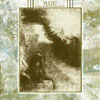 I sure do love it when an album which you have high expectations of meets and exceeds those expectations. Such is the case with the latest (and apparently final) offering from Heid, a Swedish dark ambient group whose hard-to-find debut and sophomore disc on Malignant proved themselves a group of talented fellows. This album serves as a sort of a "best-of," I always find it hard to appropriately describe dark ambient music without lapsing into a mindless jumble of adjectives... but I have to say that 'Pilgrim' is wonderfully liquid and floaty. Despite the fact that some (or all? Not having heard the first album, I cannot say for sure) of the material here is culled from earlier releases, the re-mixing and re-working of the tracks make them sound splendid together and makes it sound like an individual album, rather than a compilation of previous pieces. Heid's members have now gone their separate ways (the death of one project resulted in the birth of two just as great, Survival Unit and L.E.A.K.) but this CD is a fitting epitaph to their work, though I do wish it had included new material to boot. The album works so well as a whole, though, that it all sounds pretty much new to me, and should be sitting on top of my 'CMI-dark-ambient list' for a while to come. - Chris Zaldua
I sure do love it when an album which you have high expectations of meets and exceeds those expectations. Such is the case with the latest (and apparently final) offering from Heid, a Swedish dark ambient group whose hard-to-find debut and sophomore disc on Malignant proved themselves a group of talented fellows. This album serves as a sort of a "best-of," I always find it hard to appropriately describe dark ambient music without lapsing into a mindless jumble of adjectives... but I have to say that 'Pilgrim' is wonderfully liquid and floaty. Despite the fact that some (or all? Not having heard the first album, I cannot say for sure) of the material here is culled from earlier releases, the re-mixing and re-working of the tracks make them sound splendid together and makes it sound like an individual album, rather than a compilation of previous pieces. Heid's members have now gone their separate ways (the death of one project resulted in the birth of two just as great, Survival Unit and L.E.A.K.) but this CD is a fitting epitaph to their work, though I do wish it had included new material to boot. The album works so well as a whole, though, that it all sounds pretty much new to me, and should be sitting on top of my 'CMI-dark-ambient list' for a while to come. - Chris Zaldua
samples:
The Romans, "You Only Live Once"
Warning Label
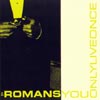 Some will remember the Romans as a supergroup of sorts, comprised of members of LA's more aggressively strange bands Monitor, Human Hands, and the Los Angeles Free Music Society, among others. Whereas some of the members' previous bands were intellectual and confrontational art-punk, the Romans' music is much more straightforward and fun. This CD reissues their 1983 LP, along with plenty of extra tracks from 1979 through 1984. Tunes like "Motu Tapu", "Footsteps" and "Nazarene" could be precursors of Shadowy Men from a Shadowy Planet's sideways surf-rock. Other tracks expose the band's roots nicely, as in the dark "Tuned Out" (whose bass-led, dramatic elegance suggests that maybe some folks outside of Boston were listening to Mission of Burma records back then) or the odd synthesizers and tape effects that pop up in unexpected places. The opening and closing tracks of heavy electronic drift are even more interesting when placed side-by-side with the surf tunes. But the mix of electronics and party-rock never feels forced or kitschy (as with recent Trans Am); it comes across as an honest extension of a single, multi-facted musical idea. The production is clearly the star of the show here, downplaying the jazz-guitar licks and bright horns with understated, dissonant keyboard lines that throw off the otherwise upbeat tunes just enough to keep things interesting. - Howard Stelzer
Some will remember the Romans as a supergroup of sorts, comprised of members of LA's more aggressively strange bands Monitor, Human Hands, and the Los Angeles Free Music Society, among others. Whereas some of the members' previous bands were intellectual and confrontational art-punk, the Romans' music is much more straightforward and fun. This CD reissues their 1983 LP, along with plenty of extra tracks from 1979 through 1984. Tunes like "Motu Tapu", "Footsteps" and "Nazarene" could be precursors of Shadowy Men from a Shadowy Planet's sideways surf-rock. Other tracks expose the band's roots nicely, as in the dark "Tuned Out" (whose bass-led, dramatic elegance suggests that maybe some folks outside of Boston were listening to Mission of Burma records back then) or the odd synthesizers and tape effects that pop up in unexpected places. The opening and closing tracks of heavy electronic drift are even more interesting when placed side-by-side with the surf tunes. But the mix of electronics and party-rock never feels forced or kitschy (as with recent Trans Am); it comes across as an honest extension of a single, multi-facted musical idea. The production is clearly the star of the show here, downplaying the jazz-guitar licks and bright horns with understated, dissonant keyboard lines that throw off the otherwise upbeat tunes just enough to keep things interesting. - Howard Stelzer
samples:
STROM.ec, "Neural Architect"
Malignant
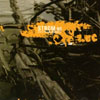 The second disc for this Finnish industrial/power-electronics act proves to be by far their strongest work yet. After a short stint of consuming as much power electronics/noise as I could, I sort of lost touch with it and have since not enjoyed it as much as I used to, save for some classic acts - one of whom is STROM.ec. Recorded a while ago and finally released on Malignant sublabel Black Plagve (*THE* label for delays!), 'Neural Architect' is an intense, interesting, varied, and powerful journey through Finnish industrial. Starting off on a high note with the ultra-sub-death-bass of 'Peilikuva,' the album takes a refreshing varied journey through several types of sound - the aforementioned noisy malevolence of 'Peilikuva' or the rhythms of 'Herra' as well as some more subdued ambient pieces. This, my friends, is the way to keep power electronics interesting: variation. Just like Anenzephalia's live album released last year, 'Neural Architect' keeps your attention focused and your mouth watering by using - not abusing - distortion and noise. Slick and tasteful artwork by Salt (this guy has about ten thousand projects concurrently existing) rounds off the package and makes this a must-get for power electronics fans. - Chris Zaldua
The second disc for this Finnish industrial/power-electronics act proves to be by far their strongest work yet. After a short stint of consuming as much power electronics/noise as I could, I sort of lost touch with it and have since not enjoyed it as much as I used to, save for some classic acts - one of whom is STROM.ec. Recorded a while ago and finally released on Malignant sublabel Black Plagve (*THE* label for delays!), 'Neural Architect' is an intense, interesting, varied, and powerful journey through Finnish industrial. Starting off on a high note with the ultra-sub-death-bass of 'Peilikuva,' the album takes a refreshing varied journey through several types of sound - the aforementioned noisy malevolence of 'Peilikuva' or the rhythms of 'Herra' as well as some more subdued ambient pieces. This, my friends, is the way to keep power electronics interesting: variation. Just like Anenzephalia's live album released last year, 'Neural Architect' keeps your attention focused and your mouth watering by using - not abusing - distortion and noise. Slick and tasteful artwork by Salt (this guy has about ten thousand projects concurrently existing) rounds off the package and makes this a must-get for power electronics fans. - Chris Zaldua
samples:
Knodel "Dawn of the Butterfly"
My Pal God
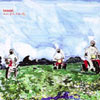 Someone please take the vocoder away from Knodel. Like a joke that's kind of funny the first time and stops being funny soon after, Knodel's Trans-Am-meets-They-Might-Be-Giants 80s-metal/synth-rock is corny without being very clever. Numerous references to "Knodel" - Knodel likes to rock, Knodel unchained, Don't fear for Knodel, It's a Knodel world, etc - are probably hilarious to the members of the band, but in me they illicit the rolling of the eyes. The vocals don't help - when they're not vocoded (and they're vocoded a LOT) the two voices sound like a duet between TMBG's John Linnell and the falsetto from "The Lion Sleeps Tonight." The choices in keyboard sounds leaves a lot to be desired, too. Granted, there are a few moments on the disc that might make you think, "OK, Knodel's not THAT bad," but these moments are few and far-between. The best moment on the entire album is the first 45 seconds of the opening title track, and it's all downhill from there. It's not that I don't like music that has a sense of humor - I really do, and I even appreciate the cover of 80s cheese-metal group Manowar's "Kingdom Come" - but the music has got to be worthwhile at the same time. I guess I should give Knodel credit for the fact that they've been making retro synth rock for four years or so (since before it was so dang hip), but do we really need another band ironically singing, "We wanna rock, we wanna rock you now"? Doesn't the joke ever get old? Apparently to Knodel, it doesn't. - Nate Smith
Someone please take the vocoder away from Knodel. Like a joke that's kind of funny the first time and stops being funny soon after, Knodel's Trans-Am-meets-They-Might-Be-Giants 80s-metal/synth-rock is corny without being very clever. Numerous references to "Knodel" - Knodel likes to rock, Knodel unchained, Don't fear for Knodel, It's a Knodel world, etc - are probably hilarious to the members of the band, but in me they illicit the rolling of the eyes. The vocals don't help - when they're not vocoded (and they're vocoded a LOT) the two voices sound like a duet between TMBG's John Linnell and the falsetto from "The Lion Sleeps Tonight." The choices in keyboard sounds leaves a lot to be desired, too. Granted, there are a few moments on the disc that might make you think, "OK, Knodel's not THAT bad," but these moments are few and far-between. The best moment on the entire album is the first 45 seconds of the opening title track, and it's all downhill from there. It's not that I don't like music that has a sense of humor - I really do, and I even appreciate the cover of 80s cheese-metal group Manowar's "Kingdom Come" - but the music has got to be worthwhile at the same time. I guess I should give Knodel credit for the fact that they've been making retro synth rock for four years or so (since before it was so dang hip), but do we really need another band ironically singing, "We wanna rock, we wanna rock you now"? Doesn't the joke ever get old? Apparently to Knodel, it doesn't. - Nate Smith
samples:
Early Day Miners, "Let Us Garlands Bring"
Secretly Canadidan
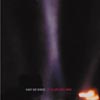 The first striking quality of Early Day Miners is the almost undisputable sense of unpretentious openness conveyed merely in the instrumentation alone. The warm, inviting melodies are slow moving, but never fragile or weak, often building to emotional climaxes as a number of guitar layers each play unique roles, not entirely unlike some of the best Bedhead moments. Strings accent a number of crescending moments, but overall, a bigger presence would be much more appreciated throughout the record. The vocals, however, strike me much differently. Vocals are much more important than most bands realize. If a band chooses to use vocals, then they need to clearly live and exist with the amount of delicacy and care given to the other instruments. Two of my own biggest issues with vocals in general are painfully exhibited on this album. First off, I cringe at double-tracked unharmonized vocals. There needs to be a strong reason when there's two singers or two tracks of voices going, and that reason should be harmony. My other problem is when vocalists are just too shy, timid, and the volumes just blend so deeply into the music that there's hardly a reason for them to be there in the first place. For me, the second full-length album from this Bloomington-based group would as an excellent instrumental record, as their songwriting and playing talents are complimented by equally impressive production skills. My own personal favorite moment being the only instrumental song, "Summer Wake," a gorgeous interplay between strings, acoustic and electric guitar. In the end, it's the vocals which could either use a lot more TLC or just be scrapped. - Jon Whitney
The first striking quality of Early Day Miners is the almost undisputable sense of unpretentious openness conveyed merely in the instrumentation alone. The warm, inviting melodies are slow moving, but never fragile or weak, often building to emotional climaxes as a number of guitar layers each play unique roles, not entirely unlike some of the best Bedhead moments. Strings accent a number of crescending moments, but overall, a bigger presence would be much more appreciated throughout the record. The vocals, however, strike me much differently. Vocals are much more important than most bands realize. If a band chooses to use vocals, then they need to clearly live and exist with the amount of delicacy and care given to the other instruments. Two of my own biggest issues with vocals in general are painfully exhibited on this album. First off, I cringe at double-tracked unharmonized vocals. There needs to be a strong reason when there's two singers or two tracks of voices going, and that reason should be harmony. My other problem is when vocalists are just too shy, timid, and the volumes just blend so deeply into the music that there's hardly a reason for them to be there in the first place. For me, the second full-length album from this Bloomington-based group would as an excellent instrumental record, as their songwriting and playing talents are complimented by equally impressive production skills. My own personal favorite moment being the only instrumental song, "Summer Wake," a gorgeous interplay between strings, acoustic and electric guitar. In the end, it's the vocals which could either use a lot more TLC or just be scrapped. - Jon Whitney
samples:
Lusine ICL, "Iron City"
Hymen
 From the moment the slick snares and electro-tinged melodies on "Blind" sputtered from my stereo, I knew I was going to dig 'Iron City.' Jeff McIlwain, whose productions have appeared on labels like Isophlux and U-Cover, presents this fourth album of groovy IDM under the Lusine ICL moniker, and makes me wonder why I've ignored him for so long. A shared release between partners Hymen Records and Mad Monkey Records, "Iron City" ranges from funky post-electro workouts to Mille-Plateaux styled experiments. Examples of the former include the video-game inspired "Tonic" and the aforementioned "Blind." "Bent" is a 4/4 head-nodder with spacey dub effects that seem ripped off of an Force Inc compilation. This one would easily have fit on Force Lab's recent Algorithm mix CD. I'd love to hear more of his work in this style. The more abstract tracks like "Invisible" and the seemingly endless "The Fast Lane" are easily skipped over, but the hip-hop influenced "Perpetual" and "Scheming" redeem the CD and show McIlwain's flexibility and range. While he's not about to be the next Timbaland or Swizz Beatz, that's pretty irrelevant to most IDM listeners who haven't bought a commercial rap release since they were in junior high. At times, Lusine ICL can be a bit repetitive, but he manages to introduce enough new elements as tracks progress to stave off boredom. Unless you're some kind of improv fanatic, I doubt you'll have trouble finding something here to suit your listening needs. - Gary Suarez
From the moment the slick snares and electro-tinged melodies on "Blind" sputtered from my stereo, I knew I was going to dig 'Iron City.' Jeff McIlwain, whose productions have appeared on labels like Isophlux and U-Cover, presents this fourth album of groovy IDM under the Lusine ICL moniker, and makes me wonder why I've ignored him for so long. A shared release between partners Hymen Records and Mad Monkey Records, "Iron City" ranges from funky post-electro workouts to Mille-Plateaux styled experiments. Examples of the former include the video-game inspired "Tonic" and the aforementioned "Blind." "Bent" is a 4/4 head-nodder with spacey dub effects that seem ripped off of an Force Inc compilation. This one would easily have fit on Force Lab's recent Algorithm mix CD. I'd love to hear more of his work in this style. The more abstract tracks like "Invisible" and the seemingly endless "The Fast Lane" are easily skipped over, but the hip-hop influenced "Perpetual" and "Scheming" redeem the CD and show McIlwain's flexibility and range. While he's not about to be the next Timbaland or Swizz Beatz, that's pretty irrelevant to most IDM listeners who haven't bought a commercial rap release since they were in junior high. At times, Lusine ICL can be a bit repetitive, but he manages to introduce enough new elements as tracks progress to stave off boredom. Unless you're some kind of improv fanatic, I doubt you'll have trouble finding something here to suit your listening needs. - Gary Suarez
samples:
Tommy Guerrero & Gadget, "Hoy Yen Ass'n"
Function 8
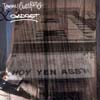 Sure it came out about a year and a half ago, but I just got my hands on it and felt like sharing. Tommy Guerrero was a full-time professional skateboarder, one who'd competed and skated with the best. He formed his own San Francisco-based skateboard company, Real Skateboards, several years back, and also gained notice as an talented musician in his own right with his debut release "Loose Grooves & Bastard Blues" in 1998. Also from San Francisco, Gadget gained respect as a skilled DJ and beat composer, forming the Function 8 record and multimedia company/collective in 1995. Together, these two San Francisco natives pay homage to the city they love on "Hoy Yen Ass'n," a funky collection of songs featuring the guitar and bass stylings of Guerrero with the beat mastering and record scratching of Gadget. It's like Jet Black Crayon without live drums and with only one bass (both are also in JBC, who are STILL recording their much-anticipated debut album). It's funky, well-composed, and a kick in the pants. The record works best when it's just Gadget sampling vocals and composing beats with Guerrero making time on the bass. Guest vocalists John Gold. and Selavie aren't bad, but the songs before and after their appearances are far superior. These songs just get the body moving in all the right ways. 'RF Interference' is a soul-searching, organ and bass driven jazz influenced groove; 'Out the Village,' the following track, is shout-outs, hand claps, and funk bass. You can definitely sense the influences. It's a disparate work, but one that works on every plane it reaches for. Check it out. - Rob Devlin
Sure it came out about a year and a half ago, but I just got my hands on it and felt like sharing. Tommy Guerrero was a full-time professional skateboarder, one who'd competed and skated with the best. He formed his own San Francisco-based skateboard company, Real Skateboards, several years back, and also gained notice as an talented musician in his own right with his debut release "Loose Grooves & Bastard Blues" in 1998. Also from San Francisco, Gadget gained respect as a skilled DJ and beat composer, forming the Function 8 record and multimedia company/collective in 1995. Together, these two San Francisco natives pay homage to the city they love on "Hoy Yen Ass'n," a funky collection of songs featuring the guitar and bass stylings of Guerrero with the beat mastering and record scratching of Gadget. It's like Jet Black Crayon without live drums and with only one bass (both are also in JBC, who are STILL recording their much-anticipated debut album). It's funky, well-composed, and a kick in the pants. The record works best when it's just Gadget sampling vocals and composing beats with Guerrero making time on the bass. Guest vocalists John Gold. and Selavie aren't bad, but the songs before and after their appearances are far superior. These songs just get the body moving in all the right ways. 'RF Interference' is a soul-searching, organ and bass driven jazz influenced groove; 'Out the Village,' the following track, is shout-outs, hand claps, and funk bass. You can definitely sense the influences. It's a disparate work, but one that works on every plane it reaches for. Check it out. - Rob Devlin
samples:
Rob(u)rang 'And Friends'
Ant-Zen
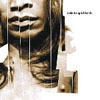 Whoa. I have to admit I've been extremely disappointed with Ant-Zen as of late, considering they've pretty much become a label completely different from the one that released the first 75 or so releases. Some certain recent successes have led me to simply drop my notion of the Ant-Zen that was and accept the Ant-Zen that is. Rob(u)rang's debut EP helps me do this easily. My first impressions of this disc were a bunch of retarded and/or broken robots covering Muslimgauze - and no, that's not an insult - at all! Since Rob(u)rang comes from the collective known as Silk Saw (at least I think he does - maybe I'm wrong, but I'll make that assumption anyway) this disc is imbued with a certain playfulness throughout, never taking itself too seriously and having fun in the process. It's also the first recorded material that Olivier Moreau (Imminent [Starvation]) has participated on since his collaboration with Synapscape - and that's a plus if you ask me. The first track, 'Silly Dance,' sets the stage for what's to come: weird, poly-/arhythmic spurts of beats and melody that have an almost tribal feel to them. More retarded-robot action follows and culminates in the longest and noisiest track 'Banks.' A definite pleasant surprise for me and one that has more or less redeemed my faith in Stefan Alt and gang. Where's the new Imminent album, Mr. Moreau!? - Chris Zaldua
Whoa. I have to admit I've been extremely disappointed with Ant-Zen as of late, considering they've pretty much become a label completely different from the one that released the first 75 or so releases. Some certain recent successes have led me to simply drop my notion of the Ant-Zen that was and accept the Ant-Zen that is. Rob(u)rang's debut EP helps me do this easily. My first impressions of this disc were a bunch of retarded and/or broken robots covering Muslimgauze - and no, that's not an insult - at all! Since Rob(u)rang comes from the collective known as Silk Saw (at least I think he does - maybe I'm wrong, but I'll make that assumption anyway) this disc is imbued with a certain playfulness throughout, never taking itself too seriously and having fun in the process. It's also the first recorded material that Olivier Moreau (Imminent [Starvation]) has participated on since his collaboration with Synapscape - and that's a plus if you ask me. The first track, 'Silly Dance,' sets the stage for what's to come: weird, poly-/arhythmic spurts of beats and melody that have an almost tribal feel to them. More retarded-robot action follows and culminates in the longest and noisiest track 'Banks.' A definite pleasant surprise for me and one that has more or less redeemed my faith in Stefan Alt and gang. Where's the new Imminent album, Mr. Moreau!? - Chris Zaldua
samples:
"you don't need darkness to do what you think is right"
Geographic / Domino
 The Pastels, Kevin Shields, Appendix Out, sounds like a great compilation, right? As Sofandi warned us, don't get overexcited. Aside from one standout track from Japanese popsters Nagisa Ni Te, this compilation is at best, mediocre. Geographic is a Glaswegan sub-label of Domino run by Stephen McRobbie of the Pastels. Together with the assistance of the Japanese label Trattoria, this compilation came together, aiming for the simpler, more pleasant side of indie pop, attempting to both pose as an aedequate introduction to each label and toss in a number of friends in addition. The downfall of this attempt is that at 17 tracks, it's trying to be a bit too many things. Even by the halfway point, (the terribly revolting track from former Jesus and Mary Chain members under their new guise, Sister Vanilla, featuring William Reid's wife on vocals) listening becomes incredibly laborious. Following that, a number of similarly half-assed attempts at song-like sketchwork almost blend in with each other. Songs like Pedro's "Amber" and Barbara Morgenstern's "Kleiner Ausschnitt" have pretty potential, but seem rather unfinished. Songs like the one from Empress are simply dull and too repetitious to even listen to entirely through. This lethargic trend continues on nearly all of the songs until the anticlimactic finish of "Outro," by Kevin Shields, which could easily be the reason he hasn't recorded a full-length record since 'Loveless'. If this disc was popping in the stores at the price of a Darla comp, I would probably recommend it more, but for even the biggest JAMC or MBV fans, save your pennies. - Jon Whitney
The Pastels, Kevin Shields, Appendix Out, sounds like a great compilation, right? As Sofandi warned us, don't get overexcited. Aside from one standout track from Japanese popsters Nagisa Ni Te, this compilation is at best, mediocre. Geographic is a Glaswegan sub-label of Domino run by Stephen McRobbie of the Pastels. Together with the assistance of the Japanese label Trattoria, this compilation came together, aiming for the simpler, more pleasant side of indie pop, attempting to both pose as an aedequate introduction to each label and toss in a number of friends in addition. The downfall of this attempt is that at 17 tracks, it's trying to be a bit too many things. Even by the halfway point, (the terribly revolting track from former Jesus and Mary Chain members under their new guise, Sister Vanilla, featuring William Reid's wife on vocals) listening becomes incredibly laborious. Following that, a number of similarly half-assed attempts at song-like sketchwork almost blend in with each other. Songs like Pedro's "Amber" and Barbara Morgenstern's "Kleiner Ausschnitt" have pretty potential, but seem rather unfinished. Songs like the one from Empress are simply dull and too repetitious to even listen to entirely through. This lethargic trend continues on nearly all of the songs until the anticlimactic finish of "Outro," by Kevin Shields, which could easily be the reason he hasn't recorded a full-length record since 'Loveless'. If this disc was popping in the stores at the price of a Darla comp, I would probably recommend it more, but for even the biggest JAMC or MBV fans, save your pennies. - Jon Whitney
samples:
We know that sometimes these CDs are somewhat challenging to find, which is why we have a community section which can be used to obtain nearly everything available on this site. |